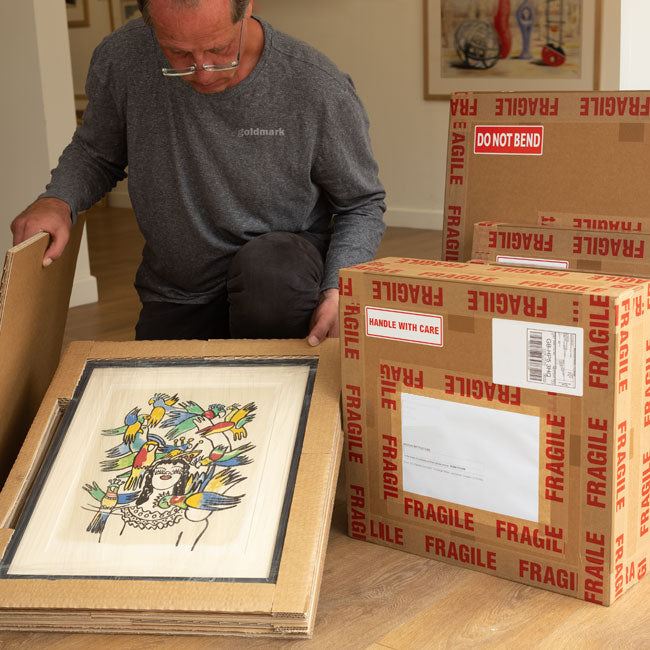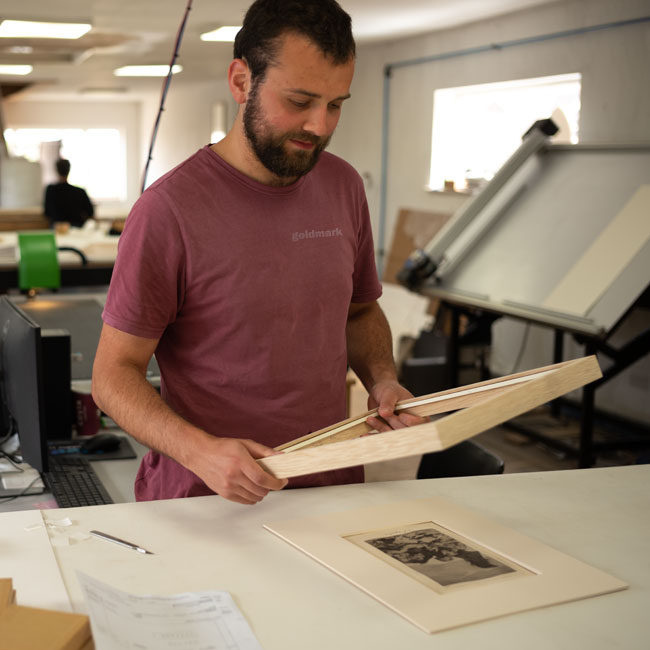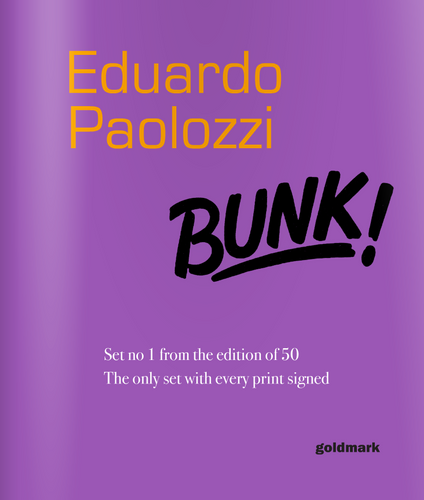E - Public Torso on Lorry in a Manhattan Street for 'Bond Clothes for Men' - Varga - Billboard - Girl, 1971
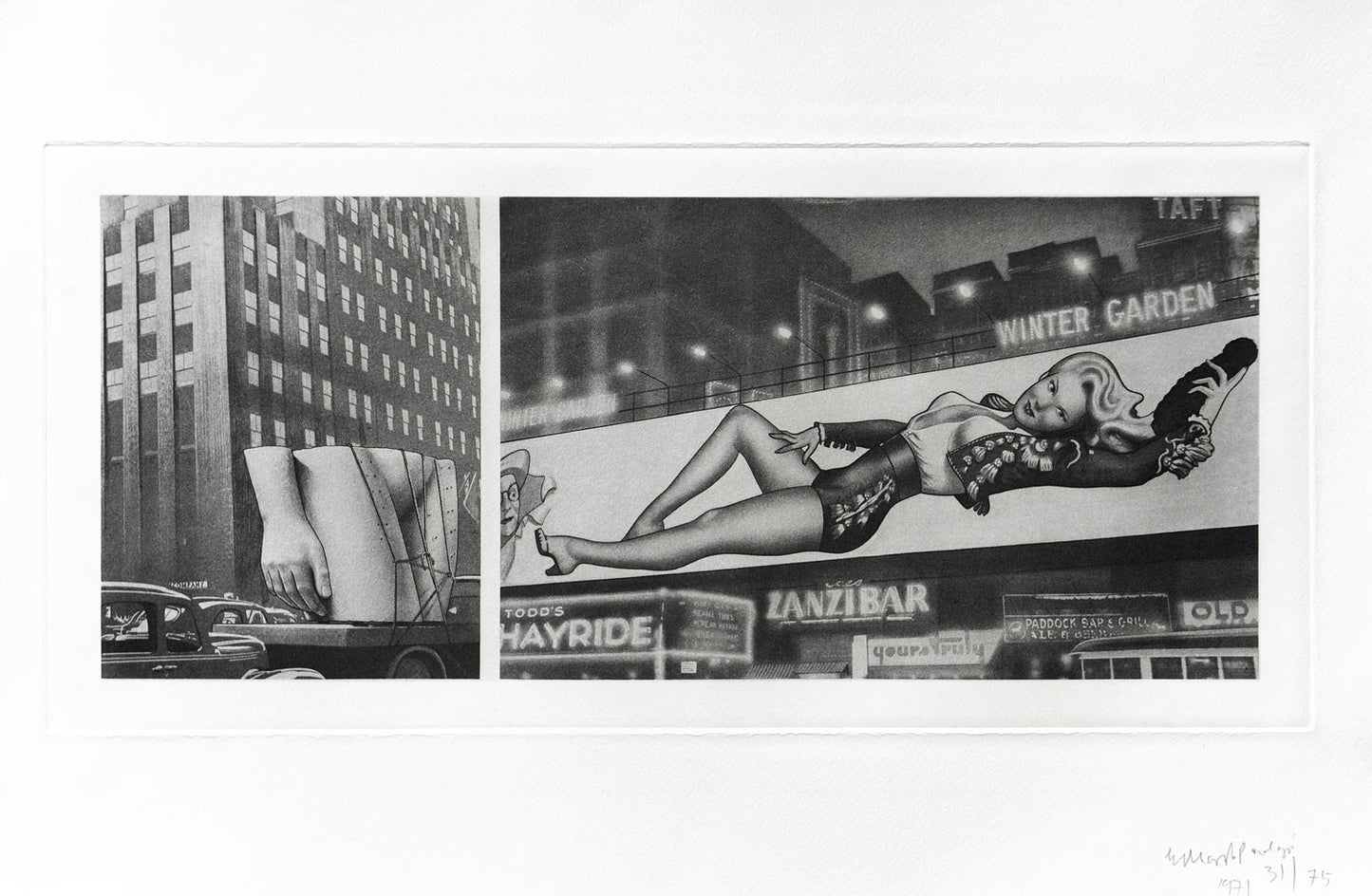
A significant member of the Group, Paolozzi greatly influenced the development of Pop Art. He emerged fully onto the Pop Art scene in 1962 with his abstract, robot-like figures such as Four Towers and Solo, but of all his work his screenprints are said to have had the largest impact on Pop Art. He taught all over the world as guest professor and lecturer, and was knighted in 1988. Eduardo Paolozzi died in 2005.
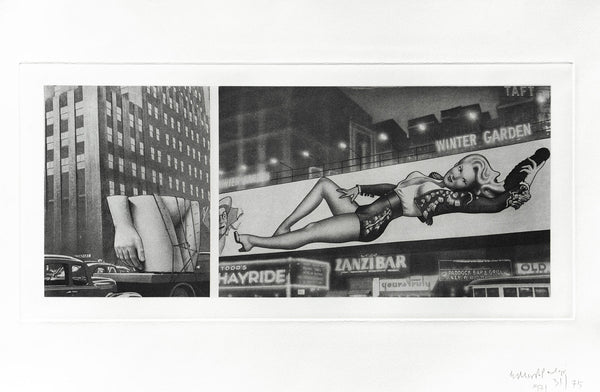
Signed and numbered.
Printed by Alecto Sudios and published by Editions Alecto. Stamp verso ea 808. This suite was commissioned by British Olivetti.
‘Cloud Atomic Laboratory’ was the second suite of etchings by Paolozzi to be published, having been preceded by a suite of twenty-four etchings, ‘The Conditional Probability Machine’ 1971. In the text of a monograph on Paolozzi, to be published in 1973, Frank Whitford writes: ‘Conditional Probability Machine and Cloud Atomic Laboratory…differ sharply from everything Paolozzi had produced before. They are the first etchings he had done and their subject-matter (again found imagery but manipulated much less than in earlier work) is at once thought-provoking and essentially pessimistic. Many of the images present men and animals as the victims of technology, show monkeys in space, for example, mice being experimented upon, or dummies demonstrating the effects of an automobile accident on the human frame. Their combined message is disturbing and has apocalyptic overtones.’
The artist told the compiler (conversation, 7 June 1972) that the images in ‘The Conditional Probability Machine’ were reproduced untreated. In this respect they contrast with those in ‘Cloud Atomic Laboratory’. Frank Whitford has written (op. cit.) that the way in which the ‘Cloud Atomic Laboratory’ etchings were produced ‘is further evidence of the artist’s need to experiment and of his desire to exploit the special skills of others. For the etching process employed here is usually only used in commercial printing and is basically photographic. In this kind of commercial etching the image is first adapted by a professional retoucher who emphasizes and eliminated parts of the original according to the characteristics of the etching process itself to ensure the best reproduction possible.
‘Paolozzi’s originals, most of them poor-quality newspaper photographs, were in any case impossible for straight reproduction, as several unsuccessful experiments proved. So the artist employed a retoucher who clarified some of the images to such an extent that the results look more like paintings than photographs. It is this ambiguity caused by the blurred line between “painted” passages and straight photography which gives the final etchings their strength.’
‘Once again, the transformation of reality by various methods of reproduction parallels much experience where the world is more often perceived at second or third hand through the filter of media than at first hand, directly. The subliminal effects of such a processed perception of reality frequently result in a blurring or deadening of the senses so that it can no longer be appreciated in its raw state. Paolozzi is anxious to heighten perception, to isolate and to high-light previously overlooked or undervalued areas of visual experience by processing it in a new way. By transforming the readymade, by pushing junk into a fine art context, he suggests ways in which they can be seen afresh or for the first time.’
Published in The Tate Gallery Report 1970–1972, London 1972.
Delivery & Returns
Free Delivery + Frame
We're delighted to be able to include free framing and UK delivery on most art orders.
Collect from Gallery
We love it when our customers take the trouble to visit us here in Uppingham.
International Delivery + Frame
We offer free framing on most international art orders. Add to basket for delivery options.
Free No Quibble Returns
If, for any reason, you are not happy with your purchase please contact us to arrange return and refund.
-
Our Free Bespoke Delivery
At Goldmark we understand the risks of sending delicate art and ceramics in the post, that’s why we hand package in made to measure boxes, frame and seal every purchase. If you do have an issue with your order, just get in touch with us and we can get it sorted for you as soon as possible.
-
Our Free Bespoke Frames
All eligible orders that include a frame with their delivery will receive a bespoke frame handmade by our dedicated talented team of frame makers. You can learn more about our frame making process here and what makes it so special.
Similar Works
-
A Gallery Supporting Real Artists
Goldmark is proud to have changed the lives of many living artists, enabling them to spend more of their time making pictures, pots and sculpture.READ MORE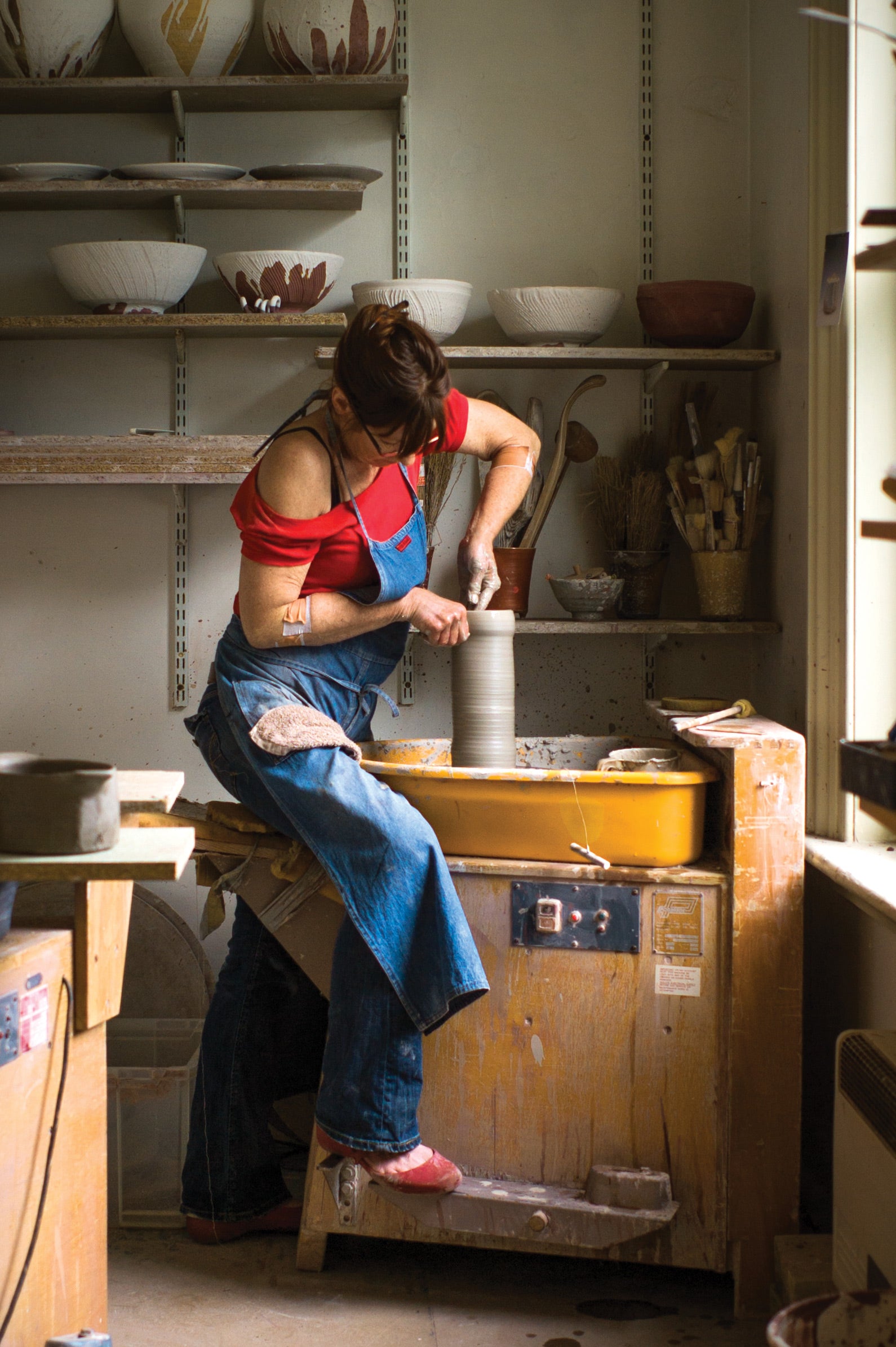
-
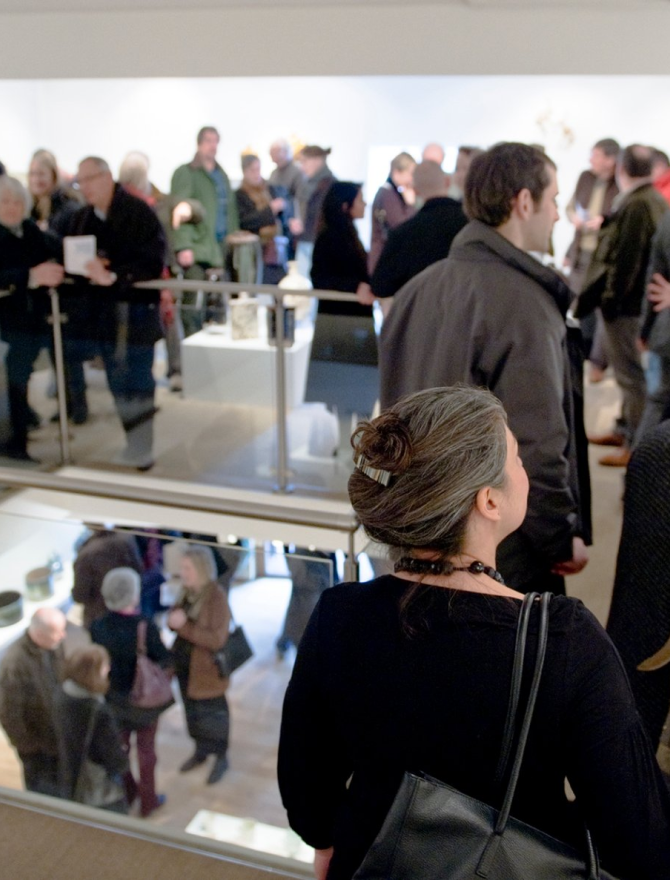 Goldmark is delighted to be a member of the International Fine Print Dealers Association, the Fine Art Trade Guild and the Confederation Internationale de Negociants en Oeuvres d'Art.READ MORE
Goldmark is delighted to be a member of the International Fine Print Dealers Association, the Fine Art Trade Guild and the Confederation Internationale de Negociants en Oeuvres d'Art.READ MORE
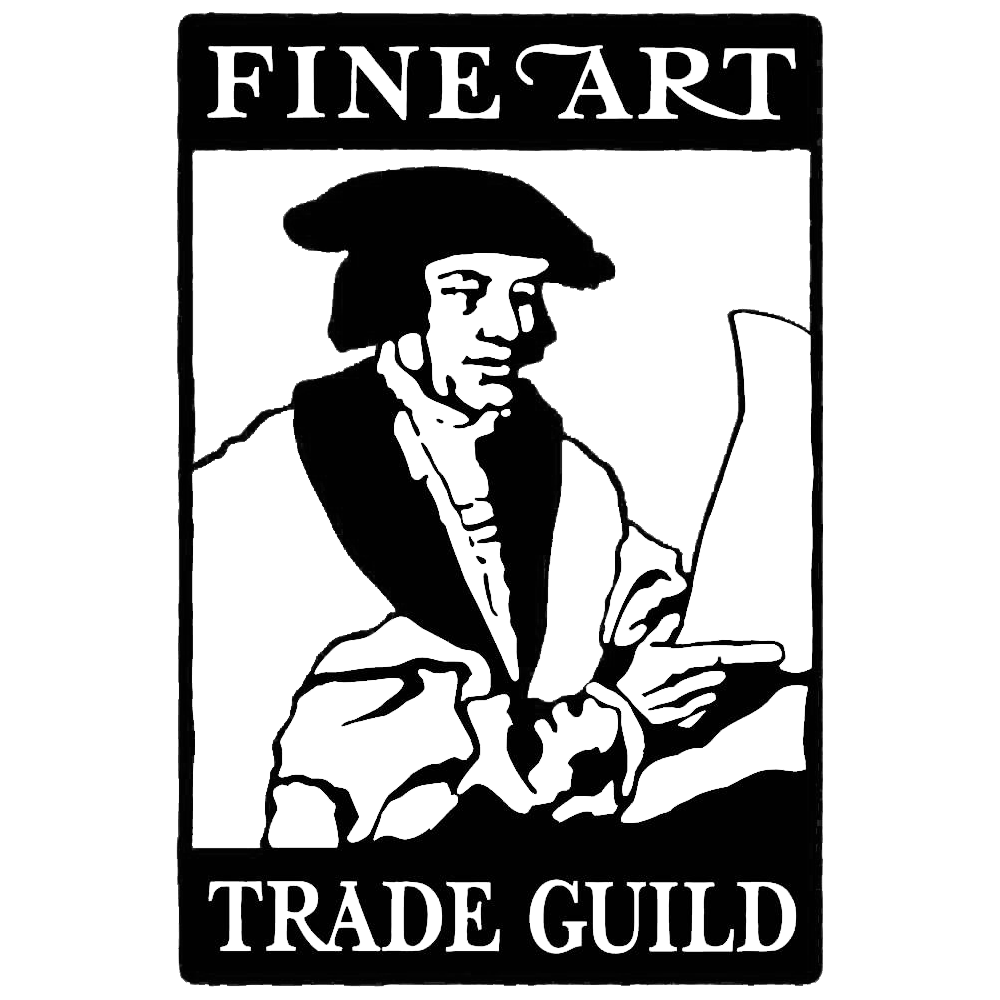
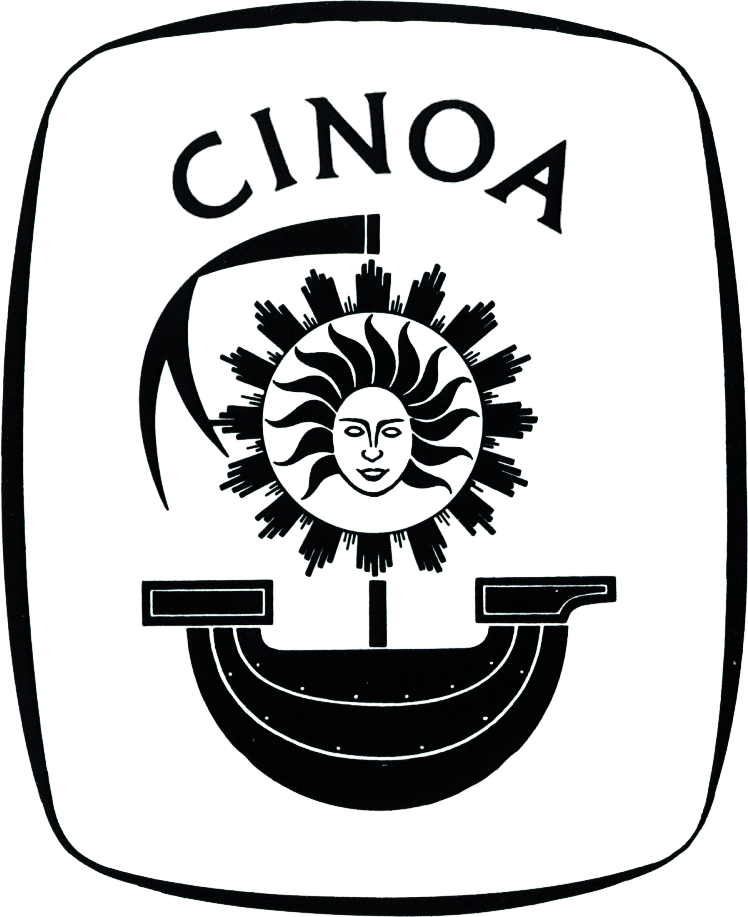
Recently Viewed
- Choosing a selection results in a full page refresh.


